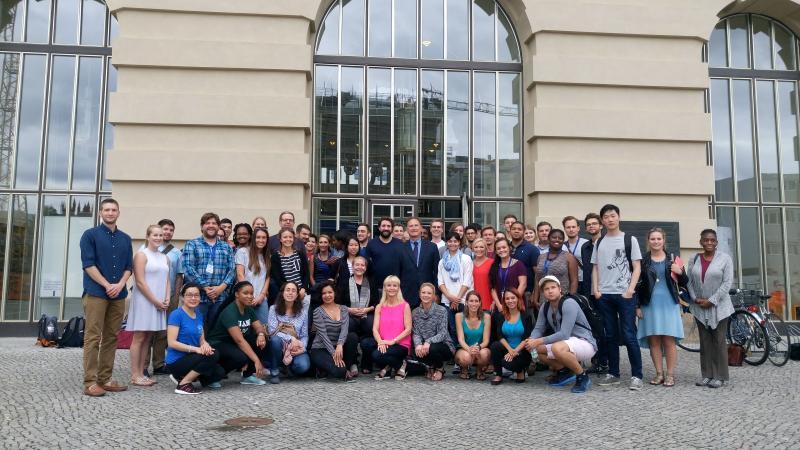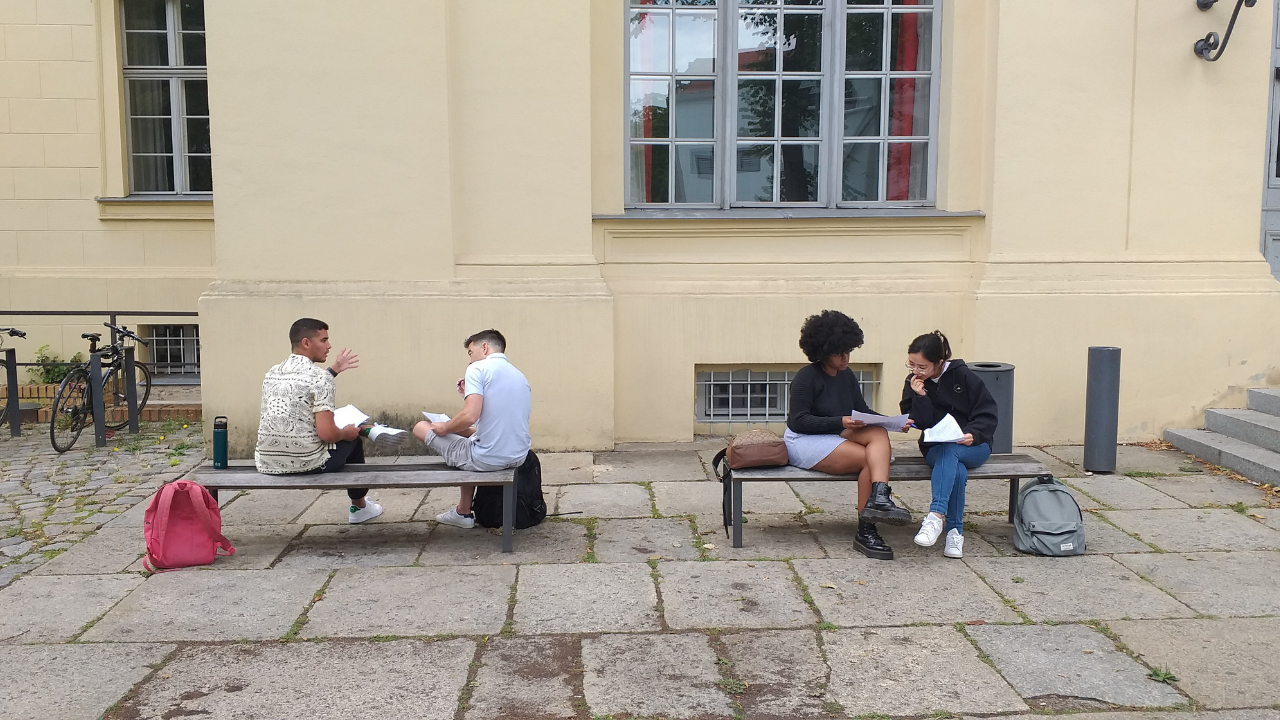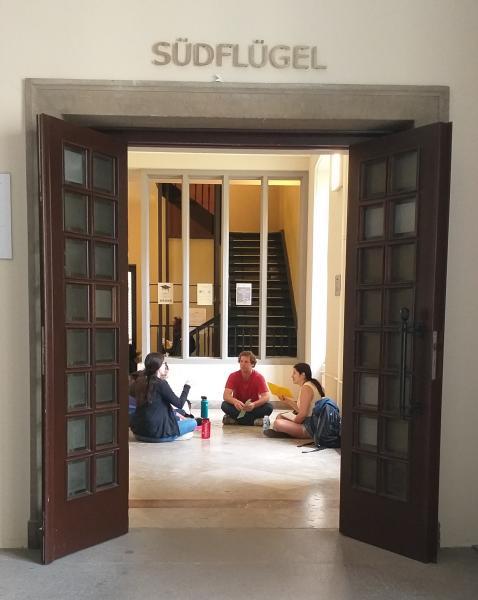Tulane Law summer abroad program in Berlin celebrates 25 years
In the 25 years that the Tulane Law's Berlin summer program has been operating, the more than 2,000 students who have participated have had a front-row seat to major world disputes including trade wars between the U.S. and China, the impact of sophisticated technologies on personal privacy, territorial disputes, the introduction of the Euro and its impact on global economies and how to resolve all manner of human crises.
How to solve these international and intercultural disputes with skill and tact is the goal of the program, operated jointly between Tulane Law and its longtime partner, Humboldt University. Celebrating its silver anniversary this year, the program -- which ended last week -- has delivered yet again. This summer more than 14 countries were represented among the 60 students that enrolled.
During the two weeks that students are in Berlin, they learn alternative dispute resolution, and the 40 hours gained there earn them a certificate in ADR.
“Understanding what conflict means in different contexts and cultures, and what methods, processes and skills are available to resolve disputes, lies at the core of this summer curriculum, said Tulane Program Director, Professor Jörg Fedtke, who has led the program for more than a decade.
“This knowledge is a valuable toolbox that students will often go back to in their professional careers and personal lives,” Fedtke said. “Add to that the rich tapestry of Berlin, one of Europe’s most vibrant cities, and you have the ingredients of a law school experience that our students are likely to remember long after they have graduated.”
Located in the heart of Berlin – one of the most iconic of European cities —the program is a collaboration with Humboldt University of Berlin, one of the oldest and most prestigious institutions in Germany. The Berlin summer program is Tulane Law’s second oldest summer program, with the Paris program in its 50th year.
In all, the law school has summer programs in Paris, France, Cambridge, England, Siena, Italy, and Rhodes, Greece. Each is focused on a different area of law, led by expert faculty.
In addition to coursework taught by Fedtke, other faculty include such scholars as Professors Lela Love of Cardozo University; Moti Mironi of Haifa University in Israel; Karl-Michael Schmidt of Osnabrück University in Germany; and Andreas Nelle of Humboldt University in Germany.
The Program has brought in a number of notable experts in ADR during previous years, including Supreme Court Justice Samuel Alito, who gave several lectures on arbitration.
The coursework is rigorous, with classes structured around skills training. Students work in small breakout groups to learn skills under the direction of various international faculty, both practicing lawyers and academics, said Fedtke. There also are extracurricular activities to immerse students in the city’s culture, including museum tours, river cruises, beer gardens and visits to historic sites such as the iconic Reichstag building in the center of town that is today the German House of Representatives.
Students say their summer experience in Berlin has been important in rounding out their legal experience.
“It is hard to beat Berlin—the incredibly diverse capital of the EU’s largest economy—as a backdrop for a course on advanced methods of negotiation and mediation,” said rising 2L Chad Molnar, who attended the program this summer. "Engaging in dispute resolution simulations with law students from around the world, guided by this highly accomplished team of instructors, was a once-in-a-lifetime experience. The lessons I learned there on how to resolve conflicts without painful and costly litigation enable me to bring real value from the start to any future employer.”

notable speakers during the Berlin summer program.


